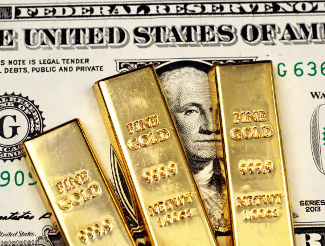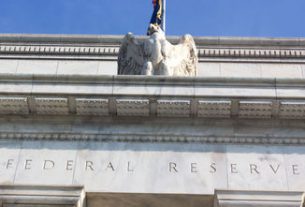President Trump has had the unprecedented ability to shape the Federal Reserve’s Board of Governors in a way that no other President has. Three of the current five Board members were appointed by him, and he just recently announced two new nominations, Stephen Moore and Herman Cain. That means that by the end of his first term he will have appointed 5 of the 7 members of the Fed’s Board of Governors and 5 of the 12 members of the Federal Open Market Committee. Will that have any effect on monetary policy?
Trump’s first three appointments to the Fed were relatively safe picks, no one who was going to rock the boat. In that sense the appointments could have been made by any previous President. But with Moore and Cain, Trump seems to want to rock the boat. He has been highly critical of the Fed in public, claiming that the Fed is ruining the economy by raising interest rates, pushing the Fed to halt its monetary tightening and engage in more quantitative easing. Fed Chairman Powell has held off on further rate increases, although just how much of that is due to Trump’s pressure and how much is due to the worsening economy is up for debate.
Both Moore and Cain have been derided in the mainstream media for supporting the gold standard, although that may just be a plot to tar them as out of touch with the times. Moore acknowledged that the gold standard is better than our current monetary system, but his preferred system is one which ties the dollar to a basket of currencies, a proposal that has some degree of acceptance among conservative economists as perhaps being more “sophisticated” than a mere gold standard. So he won’t be able to be relied on as a solid gold standard proponent on the Board.
Cain supported the gold standard during his Presidential run in 2012, although it was not unqualified support. In particular, his insistence that the gold standard not limit the amount of dollars in circulation was a condition that undermines the very purpose of the gold standard. And because his support of the gold standard came about as part of a Presidential campaign in which he was forced to compete against politicians more knowledgeable about gold such as Ron Paul, it’s unclear just how deep-seated Cain’s support of the gold standard is. If it was just a campaign ploy then we can’t be too hopeful about Cain’s gold standard advocacy.
Still, with the economy looking set to enter recession in the near future we have to remain hopeful that Moore and Cain will bring some sense to the Fed. As the effects of easy monetary policy become evident, there will naturally be a reaction against that policy. Just as we saw in the aftermath of the 2008 crisis, when the gold price went through the roof as investors flocked to the safe haven of gold investment, the aftermath of the coming crisis will see renewed discussion of the merits of the gold standard, of gold as money, and of the demerits of fiat money and discretionary Fed monetary policy. More so than any other current members of the Board, Moore and Cain would be the most likely Board members to start asking the tough questions and bringing up the possibility of a return to some sort of gold standard.
This article was originally posted on Goldco.





